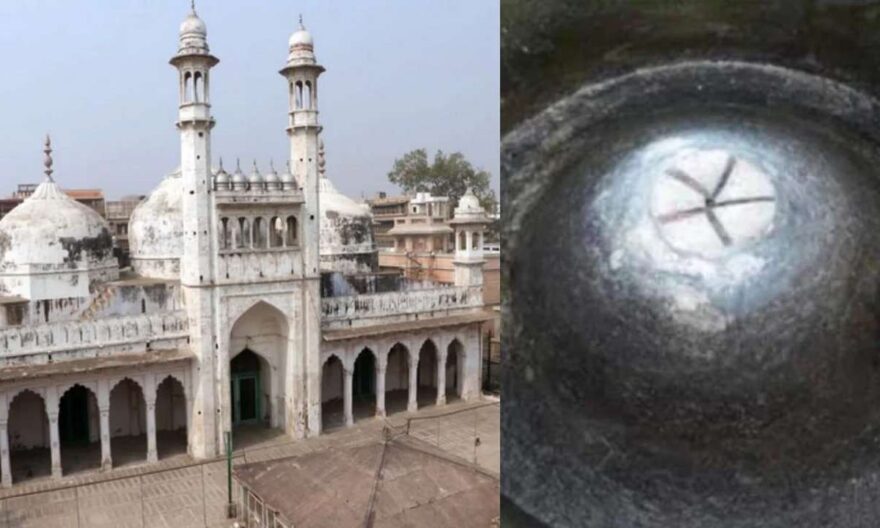
A Varanasi court on Friday reserved its order on carbon dating as part of the survey conducted at the Gyanvapi mosque.
The court is scheduled to deliver its judgment on July 21, 2023.
The Archaeological Survey of India (ASI) was asked in the petition submitted by the Hindu side of the case to survey the entire Gyanvapi mosque complex.
In May, 2023, the court had agreed to entertain a plea for an extensive survey of the entire Gyanvapi mosque premises by the Archaeological Survey of India (ASI).
The mosque is located adjacent to the Kashi Vishwanath temple. The court had accepted the petition filed by lawyer Vishnu Shankar Jain, representing the Hindu side.
After considering Vishnu Jain’s plea, the court directed the Gyanvapi mosque committee to respond to the arguments put forth by the Hindu side. Subsequently, the court heard both parties and has now concluded the proceedings concerning carbon dating.
A few days ago, the Hindu petitioners approached the Supreme Court, seeking an urgent hearing of their plea challenging the Allahabad High Court’s order, which directed the Archaeological Survey of India (ASI) to conduct a scientific investigation of the “Shivling” located within the Gyanvapi complex in Varanasi.
While determining the age of a person based on their birth year is relatively straightforward, establishing the age of objects, deceased animals, fossil remains, or plants becomes increasingly complex. Dating techniques play a crucial role in comprehending the historical significance of objects that have existed for centuries or understanding the evolutionary processes undergone by various species.




